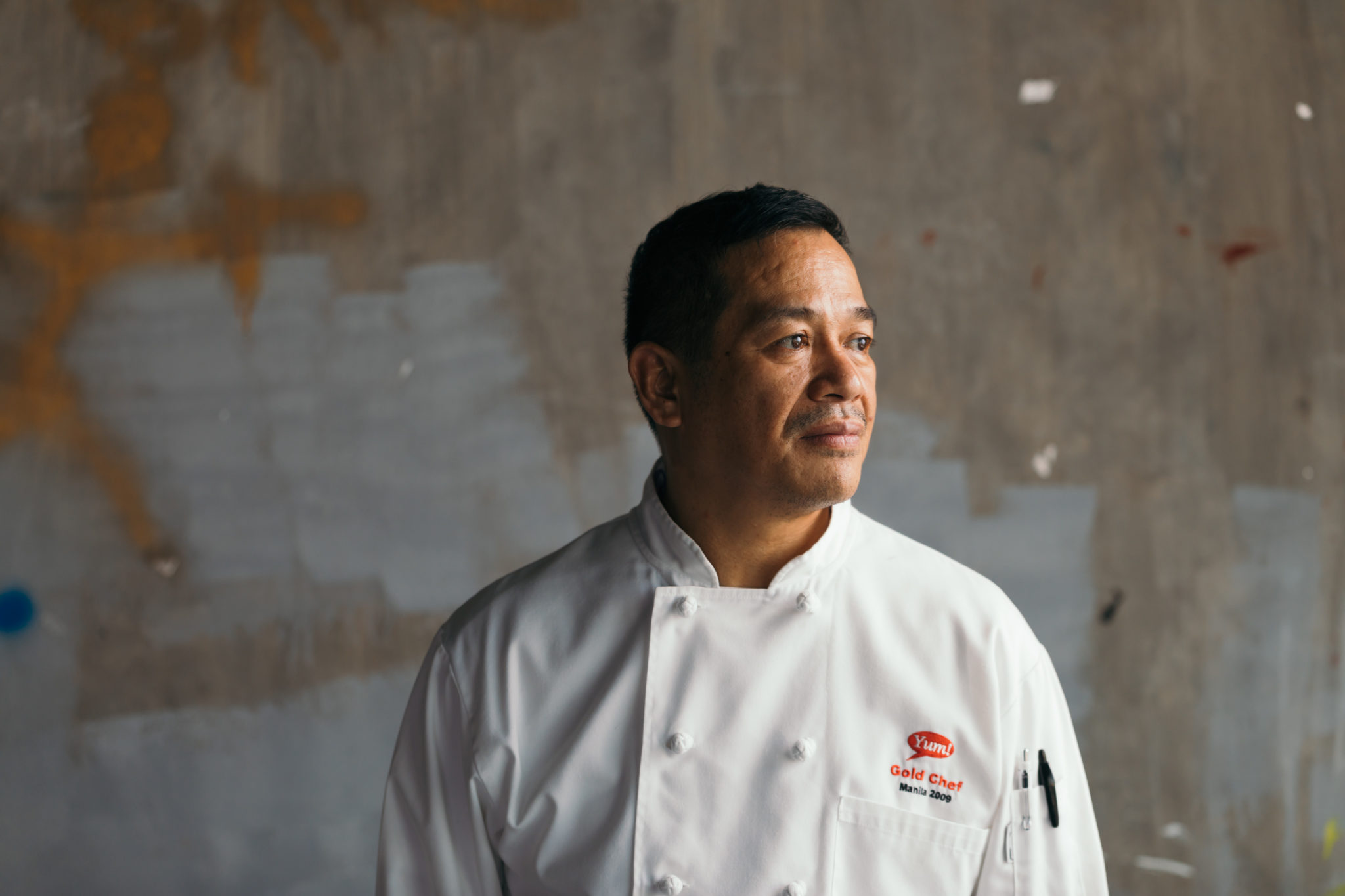Thanks to Gordon Ramsay and his hit television series “Hell’s Kitchen,” the average person knows how grueling kitchen duty can be for every culinary professional. And it’s almost gotten to a point where we think the kitchen is any chef’s default workplace.
Where temperatures and tempers rise, your favorite dishes come to life. But for some chefs, the heat isn’t confined in the kitchen, and the onslaught of the food rush happens elsewhere.
“I never imagined that I’ll be working in a corporate setting—that I’ll have a desk and weekends and holidays. This is a first for me,” says Johan Movido, head of the innovations department at McCormick Philippines.
Having interned in a kitchen and managed production at a pastry shop, Movido is well aware that chefs who prepare dishes full-time function on an operational scale. As long as the last call hasn’t been made, chefs are busy at work and often, they are among the last standing at any food establishment. “In the kitchen, things get routinary. It’s more of following orders, unless you’re the executive chef,” he says. “But your skills are sharpened every day.”
At 23 years old, Movido is considered a novice in the culinary scene, but his experiences inside and outside of the kitchen taught him at an early age that at the core of a chef’s role is the tempestuous art of multitasking. Often, he juggles wearing toque and tie.
“I never imagined that I’ll be working in a corporate setting—that I’ll have a desk and weekends and holidays. This is a first for me,” says Johan Movido, head of the innovations department at McCormick Philippines.
“I spend around 70 percent of my time in the kitchen creating recipes and testing products, and 30 percent at my desk finishing paperwork,” Movido says, explaining that he is in charge of creating new concepts for industrial sales and product development for McCormick. His role as innovations lead not only requires him to constantly churn out recipes, he also has to think of the company’s next star product.

“By star product we mean that it’s something everyone will use. But it’s kind of difficult to think of the next star product if almost everything needed in a kitchen is already available in the market,” he says. “What else do we come up with, right?”
And so there lies the constant challenge of Movido’s job: to be on the lookout for the next big thing in the realm of ready mixes and flavor enhancers. This not only takes a lot of creativity, it also requires foresight and an impressive mastery of the market. After all, the real indication of success in commercial food innovation is to set the trend, not follow it.
The pressure this brings about is long-term. Each product takes about a year and a half to be ready for launch—unlike in the kitchen, where the pressure of having to carry out tasks flawlessly in a limited amount of time comes and goes with every order.
Just as fulfilling
As an international restaurant chain’s culinary manager for Asia Pacific, Dennis Hipolito knows the gospel truths of product development all too well. His responsibilities include product innovation and understanding “how things work with cross-functional teams as well as technical knowledge and its development.”
“I get to see my creations on TVCs and billboards. What makes it exciting is what we’ll be able to come up with that’ll be a hit with the consumers,” Dennis Hipolito says.
Having people who know the ins and outs of a particular market helps make any business a well-oiled machine and weatherproofs it against competition. Armed with both technical skill and enterprising know-how, Hipolito is well acquainted with the fulfillment that comes with increasing a brand’s growth, especially in a saturated industry like food and beverage.
“I get to see my creations on TVCs and billboards. What makes it exciting is what we’ll be able to come up with that’ll be a hit with the consumers,” Hipolito says. But much like Movido, the chef admits that holding a corporate position wasn’t part of his original plan. “I initially intended to open a small café or restaurant, but I got funneled into doing R&D and innovation work along the way,” Hipolito recounts.
Finding purpose in passion
For Albert Ros, who first graduated with a degree in food science and technology before finally deciding to pursue culinary studies nine years later in 2003, a career in food came naturally. His love for it runs in his veins; he comes from a family of cooks and his father was a master baker at MY San Biscuits until retirement. But instead of signing up for kitchen duty, Ros saw an opportunity to help raise the bar for local food safety and manufacturing.
“There is a very big problem in the Philippines’ food industry. It’s the lack of good manufacturing practices,” he says solemnly. “There are so many companies, even well-known brands, but if you do a thorough inspection, you’ll shut them down because they don’t follow good manufacturing practices.”
“I consider myself a rookie in culinary arts, but I’ve been steeped in food science for almost 24 years,” says Albert Ros.
As he starts getting into the nitty-gritty of standardizing sanitation and operation practices, conducting hazard analyses, and determining critical control points in cookery, it becomes clear that Ros is a man on a mission. And this mission wouldn’t have commenced had the food technologist-turned-chef stayed within the confines of a kitchen.
Now, Ros does technical consultancy work for eight companies that manufacture food items, including raw materials. These companies rely on him to focus on areas within his expertise—from food tech and baking science to the culinary arts. “I consider myself a rookie in culinary arts, but I’ve been steeped in food science for almost 24 years,” he says. In his line of work, he spends most of his time in the office handling paperwork or conducting research in the field, and he wouldn’t have it any other way.
“For me, food tech and being a chef go hand-in-hand. I love both, but I saw that I would be able to help more if I specialized in food technology. There are a lot of things to improve, a lot of problems to solve,” he notes, proving that there are many layers to the industry, and those immersed in culinary pursuits are sure to carve their own creative space, whether or not their calling lies in the kitchen.
Originally published in F&B Report Vol. 15 No. 1





